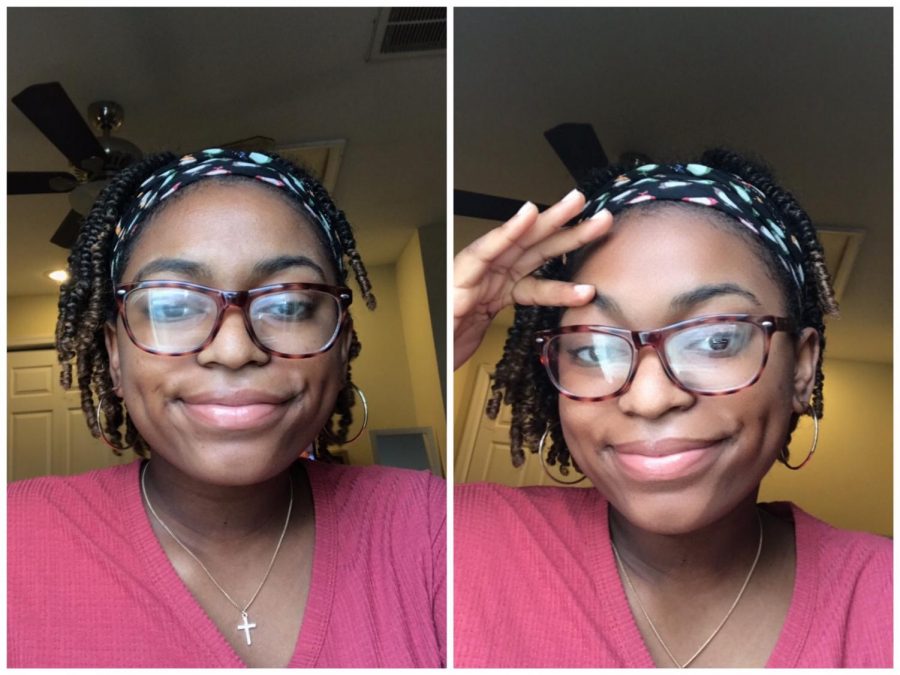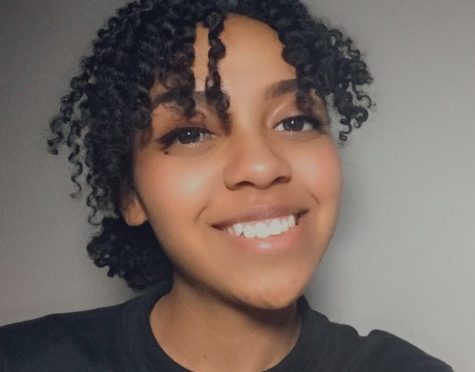Filters alter beauty perceptions
Comparison of a natural photo (left) and a filtered photo (right).
January 2, 2020
Clear, dewy skin. Prominent cheekbones. Eyelashes long enough to create a gust of wind with every blink. Why bother with skin treatments and makeup when filters and editing can fix all flaws? Many prefer their ideal self over their natural beauty due to vulnerability in sharing physical flaws on social media.
Live “beautifying” face filters from Snapchat and Instagram make the user perfect to a set standard: whiter teeth, bigger eyes, narrow noses, and jawlines, and other adjustments. The generic template of live filters magnifies eurocentric features, and more often than not, people of color with prominent facial structures are merged to conform to western beauty, according to The Guardian, a liberal news resource online from the UK. It also lightens skin tones to a concerning degree, and it is most noticeable with those who have darker skin colors.
FaceTune, a portrait and selfie editing app, enables complete customization of photos for a $2.99 purchase. This allows for free reign over bodily alterations.
Media embraces alterations of one’s realistic self to present their best, contrary to genuine. This reached the extent that many influencers and individuals do not go without editing pictures. Kim Kardashian applied makeup on her child and edited the picture afterward. James Charles, makeup enthusiast, openly edits his photos, for he said, “photo editing is just as much an art as makeup.”
Filters constrict perceptions of beauty in society. Oftentimes, to share media with imperfections leaves many vulnerable to negative comments from peers and strangers. Due to feelings of inadequacy, disorders are diagnosed with regard to obsession over physical flaws like body dysmorphia. In extreme instances, individuals seek plastic surgery to resemble their edited faces, but surgeons cannot physically perform them given one’s natural facial structure.
The purpose of filters and editing, in this sense, has been misconstrued. Rather than adding to aesthetics for the sake of art, alterations give a false image to satisfy the person.
Photo editing should not be bashed, for it is self-expression, but rather natural beauty should be heavily embraced. Pessimistic thoughts and constant comparisons with those considered more attractive do not permit acceptance with oneself. Practices of self-love and gratitude encourage positive affirmations once learned, as every person is granted with assets that their neighbor does not have.


